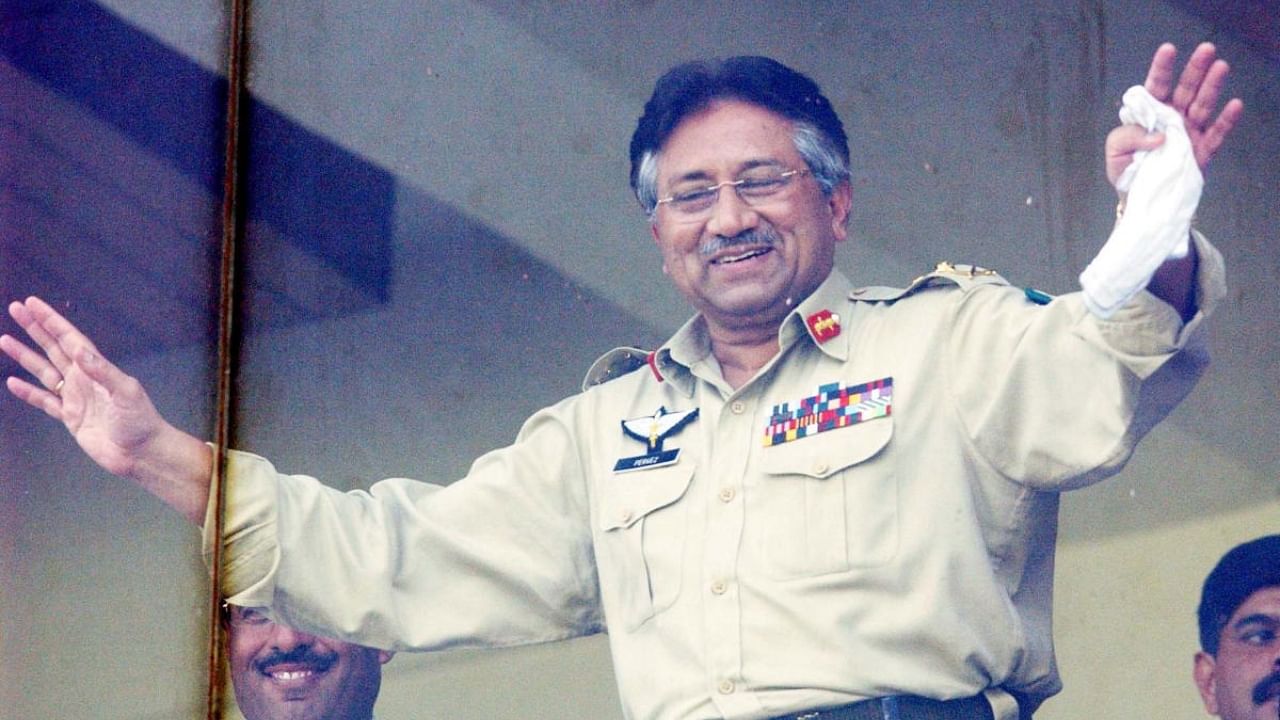
Sharp differences among political leaders came to the fore in Pakistan’s Senate on Monday over the offering of prayers for the former military ruler Pervez Musharraf, who died in Dubai following a prolonged illness.
Musharraf, the 79-year-old bespectacled moustachioed four-star general of the Pakistan Army, died at the American Hospital in Dubai on Sunday, following a protracted illness. He had been living in self-exile in the UAE since 2016.
Pakistani Parliament follows a tradition of offering Fateha (prayers) for the departed soul when a leading politician or personality of the country dies.
The members of the Senate, the upper House of Parliament, hurled allegations against one another on Monday for supporting dictatorial regimes and violators of the Constitution when the issue of prayers for Musharraf came up.
The move of supplication was led by the leader of the opposition in the senate Senator Shehzad Wasim of the Pakistan Tehreek-i-Insaf party and supported by other members of his party.
When Senator Mushtaq Ahmad of rightwing Jamaat-i-Islami, who was about to lead a joint invocation for those killed in the earthquake in Turkey, was asked to also pray for Musharraf’s soul, he refused by saying that he would only lead the invocation for the quake victims.
The refusal led to vociferous exchanges among lawmakers with some members reminding Senator Mushtaq that his party had also once supported Musharraf.
Senator Maula Bakhash Chandio of the Pakistan Peoples Party also supported those against a joint prayer for the former military strongman.
Later, the PTI lawmakers led by Senator Wasim, who was given a break in politics by Musharraf, offered a customary prayer while the treasury senators refused to join them.
The split in the upper House over offering a prayer for a dead person was rare and an apt reflection of Musharraf’s chequered legacy.
Musharraf served as president of Pakistan from 2001 to 2008. He fled Pakistan in 2016, spending his final years in exile in the UAE.
The architect of the 1999 Kargil War seized power after a bloodless military coup in 1999 and remained in charge until 2008. His time in power was shaped by the 9/11 attacks and their aftermath.
Musharraf was accused of complicity in the assassination of former Pakistani prime minister Benazir Bhutto in 2007.
Musharraf's years in power have his defenders. The economy grew during his leadership, while the country was seen as strategically important.
Born in New Delhi in 1943, he migrated to Pakistan in 1947 and was the last military dictator to rule Pakistan.